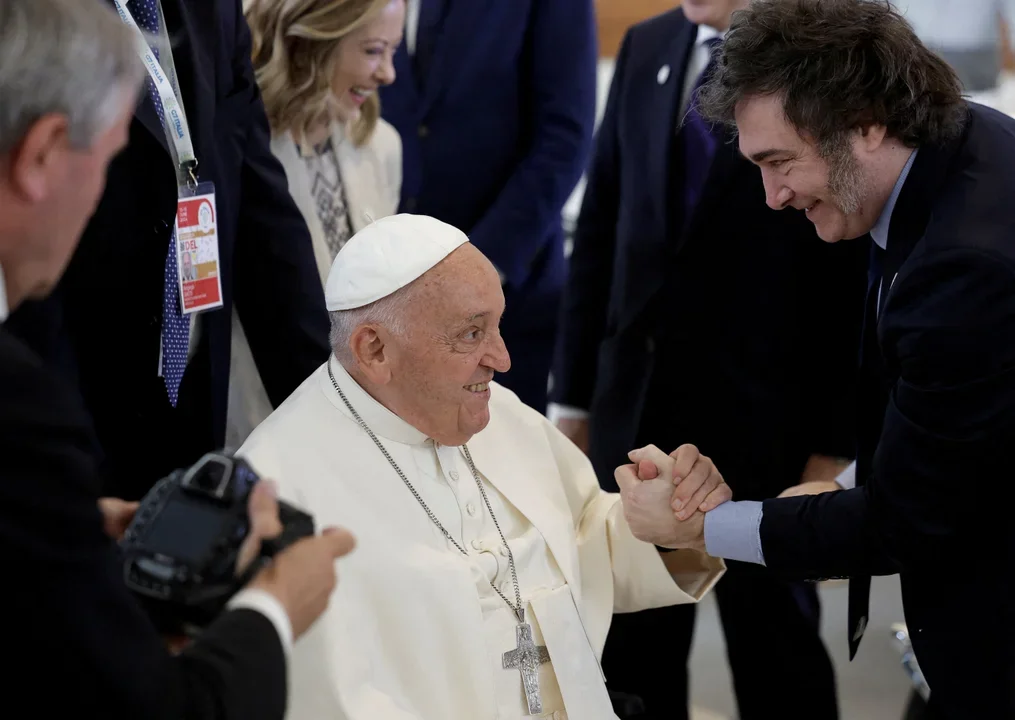The death of Pope Francis, the first Latin American Pope and a pivotal figure in the Catholic Church during the 21st century, has sparked reactions around the world. In his home country of Argentina, the news was met with shock, sorrow, and reflection on the life and impact of one of the most significant religious leaders of modern times.
Jorge Mario Bergoglio: The First Jesuit Pope
Jorge Mario Bergoglio, born on December 17, 1936, in Buenos Aires, was elected Pope Francis on March 13, 2013. As the first Jesuit and the first Latin American Pope to sit on the papal throne, his papacy was marked by a deep focus on social justice, the fight against poverty, and a call for global peace. His choice to be known as Pope Francis reflected his commitment to simplicity, humility, and compassion for the most vulnerable in society.
Pope Francis and Argentina: A Complex Relationship
Despite his profound connection with Argentina, Pope Francis never visited his homeland during his 12 years as Pope. This decision raised numerous speculations. Analysts suggested that Pope Francis avoided getting involved in the political polarization of Argentina, while others pointed to scheduling conflicts or international commitments. However, the Pope expressed his desire to visit Argentina on several occasions, but the trip never came to fruition.
Reactions from Argentina: A Nation in Mourning
In Buenos Aires, thousands of faithful gathered at the Metropolitan Cathedral, where Bergoglio served as Archbishop before becoming Pope, to pay their respects. Vigils and religious services were held in cities across the country to honor the Pope’s memory. His figure sparked both admiration and debate in Argentina, where his relationship with the ruling governments and views on social and political realities led to varied interpretations.
From the presidency of Argentina, led by Javier Milei, a statement was issued on social media expressing deep condolences: “The Office of the President mourns the passing of Pope Francis, Jorge Mario Bergoglio, the first Argentine to lead the Catholic Church since 2013, dedicating himself with love and commitment from the Vatican.” The message also praised Pope Francis for his tireless fight to protect life from conception, promote interfaith dialogue, and bring spiritual life to youth.
Political Leaders Respond to the Pope’s Passing
In addition to President Milei’s statement, Cristina Fernández de Kirchner, former president and vice president of Argentina, also shared her thoughts. “He was the face of a more human Church, with feet on the ground, without ceasing to look to the heavens. We will miss you, Francisco,” she wrote on social media. Mauricio Macri, the former president of Argentina (2015-2023), also paid tribute to the Pope’s legacy, stating that Pope Francis’s life was an example of commitment and leadership, both in his words and actions.
A Father Figure: The Archdiocese of Buenos Aires Mourns
From the Archdiocese of Buenos Aires, expressions of sorrow emphasized the deep loss felt by the local community. “We feel orphaned by the death of our father, who so dearly loved the city of Buenos Aires and this Archdiocese,” was a sentiment echoed throughout the community. The Archdiocese also called for hope, emphasizing that the legacy of Pope Francis should live on in a Church that is merciful, joyful, and committed to the poorest.
Pope Francis’s Global Legacy
Pope Francis’s influence transcended borders, becoming a symbol of humility, dialogue, and a powerful advocate for the marginalized. His papacy included notable initiatives, such as interfaith dialogue, addressing the migration crisis, and a commitment to environmental protection. He was also an outspoken critic of economic inequalities and international conflicts, calling for a more just and peaceful world.
His approach to leadership transformed the Catholic Church, and his legacy will continue to influence future generations of religious and political leaders. His commitment to human rights, poverty alleviation, and fostering peace remains a cornerstone of his papal mission.
The Vatican’s Next Steps: Mourning and Transition
In light of Pope Francis’s passing, the Vatican has announced a period of mourning, followed by the conclave that will elect his successor. World leaders, both political and religious, have expressed their condolences, acknowledging the Pope’s extraordinary efforts in promoting human rights and peace.
With the end of an era of reform and challenges at the Vatican, the world now enters a period of reflection on Pope Francis’s legacy. His impact will continue to be a topic of discussion and analysis for years to come.
Conclusion: A Legacy of Faith and Compassion
The death of Pope Francis signifies the end of an era for the Catholic Church, but it also opens a new chapter in its history. His humble leadership, commitment to social justice, and call for a merciful and compassionate Church will forever be a defining part of his legacy. The Church and the world will continue to reflect on his teachings, ensuring that his vision of a more inclusive and human-centered Church remains a guiding light for future generations.

